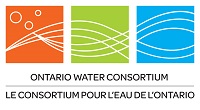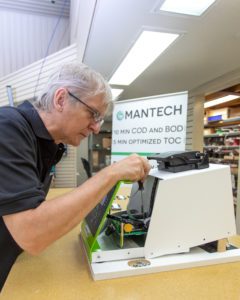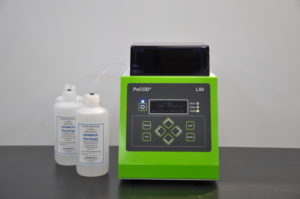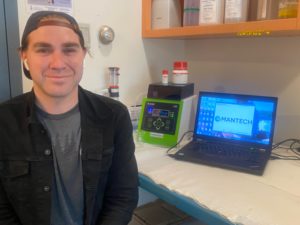As a finalist in World Wildlife Fund’s Nature x Carbon Tech Challenge, MANTECH is bringing its revolutionary PeCOD® Analyzer to the frontlines of climate change. It’s just the latest example of the technology’s extraordinary versatility.
In 2016, MANTECH launched the PeCOD® Analyzer. The portable, nanotech-based tool makes it possible to measure chemical oxygen demand (COD) in water without lab facilities, harmful chemicals or the need for a chemistry degree.
“It’s about getting a simpler analyzer that gives you the results quick,” says the company’s CEO, Robert Menegotto. “It’s green, it’s sustainable.”
The device found an immediate market in the wastewater sector, where COD is a key indicator of how well a treatment plant can break down organic material. The speed of the test performed by the PeCOD® Analyzer greatly benefited those in this sector from industries with wastewater to actual treatment facilities. Industries with wastewater could quickly monitor for compliance purposes as their wastewater is often subject to fines if the contaminants in their wastewater exceed a certain level. On the treatment side, operators can more efficiently monitor the wastewater coming in and make quicker and informed decisions regarding the treatment needed.
Next, a partnership with the Centre for Water Resources Studies at Dalhousie University and an OWC-funded collaboration with University of Toronto helped validate its ability to measure oxidizable organic material in drinking water — material that can lead to biofilm problems and dangerous disinfection by-products (DBPs).
As climate change raises the amount of oxidizable organics in drinking water supplies, monitoring and controlling those levels is increasingly important.
“It’s a tool that’s been missing from the toolkit for drinking water engineers,” says Menegotto.
But that was just the beginning for the PeCOD® Analyzer.
Detecting contamination in drinking water supplies
For example, researchers from University of Victoria used the analyzer in a Northern Quebec hamlet that relies on trucks to deliver drinking water. In this remote part of the country, testing water samples for organic contamination using conventional methods means flying them hundreds of kilometres away.
But thanks to MANTECH’s simple, portable and empirical tool, the researchers were able to do it on the spot — and reveal that oxidizable carbon levels were building up along the journey from the treatment plant to the kitchen faucet. The problem was a “recipe for boil water advisories,” according to Menegotto, but also easy to address by regularly cleaning the trucks and home reservoirs.
The PeCOD® Analyzer can also detect sudden spikes in carbon, providing an early warning of potential contamination. That application attracted interest from Health Canada following the fuel leak in October 2021 that contaminated Iqaluit’s drinking water supply for nearly two months.
Monitoring fresh water
Meanwhile, in the IISD Experimental Lakes Area (ELA) north of Kenora, researchers are using the PeCOD® Analyzer to look at how different types of carbon move through freshwater food webs in rivers and lakes. That includes examining easy-to-digest organic carbon from soil and leaves and so-called “recalcitrant” carbon like the some of the massive, complex molecules in oil spills.
“It’s really a very useful piece of equipment for us,” says ELA head scientist Vince Palace.
Palace’s collaborator, MSc student Blake Cooney, agrees. “What the PeCOD® allows us to do is get pretty much instant analysis and instant data,” he says.
Although the analyzer simply measures the presence of oxidizable carbon, Palace and Cooney believe that how fast it oxidizes a sample could provide insights into the type of carbon present: such as fuel, pharmaceuticals and leachates from microplastics.
“What you get is a curve that is effectively the oxidation rate,” Cooney explains. “So I’m hoping to model it with differential equations and then seeing if we can pull out different areas of the curve that would be indicative of different oxidation rates for different compounds.”
Looking forward, Palace sees big opportunities for communities to use the technology to monitor their local freshwater. “I think the most exciting thing about it is it’s very user friendly,” he says.
Tracking carbon sequestration in soil
Recently, Menegotto’s eldest daughter, a master’s student in agricultural economics, suggested yet another application for the PeCOD® Analyzer: measuring the carbon-capture potential in soils.
Initial tests delivered promising results, prompting MANTECH to team up with ELA and University of Guelph to pursue the application further. Then World Wildlife Fund Canada announced its Nature x Carbon Tech Challenge, putting out a call for cost-effective, innovative and user-friendly solutions to support community-led carbon measurement in Canada.
It seemed tailor-written for them. MANTECH and ELA submitted a proposal, and in May 2022, MANTECH was named one of five finalists, receiving $25,000 to refine and validate their tool.
“Sequestering carbon is a hot topic,” says Cooney. “Being able to get relatable and reliable data across a country as vast as ours is going to be huge.” And if the analyzer is chosen as a winner in March 2023, the team will take home $100,000.
Gearing up for greater success
All these developments have contributed to MANTECH’s business success. Over the past two years, the company’s sales have nearly tripled, thanks in part to the PeCOD® Analyzer. Today, they’re selling across North America, Europe, Asia, Australia, the Middle East and Africa.
“We’re supplying the entire country of Botswana’s wastewater labs for a World Bank-funded project,” says Menegotto.
Over the same time period, they’ve tripled their staff, acquired two companies and funded a lab at University of Waterloo through Mitacs. And Menegotto foresees more wins to come.
“We’re really excited by this. We just keep finding new ways to apply this technology,” he says.
PeCOD® is a registered trademark of MANTECH.




